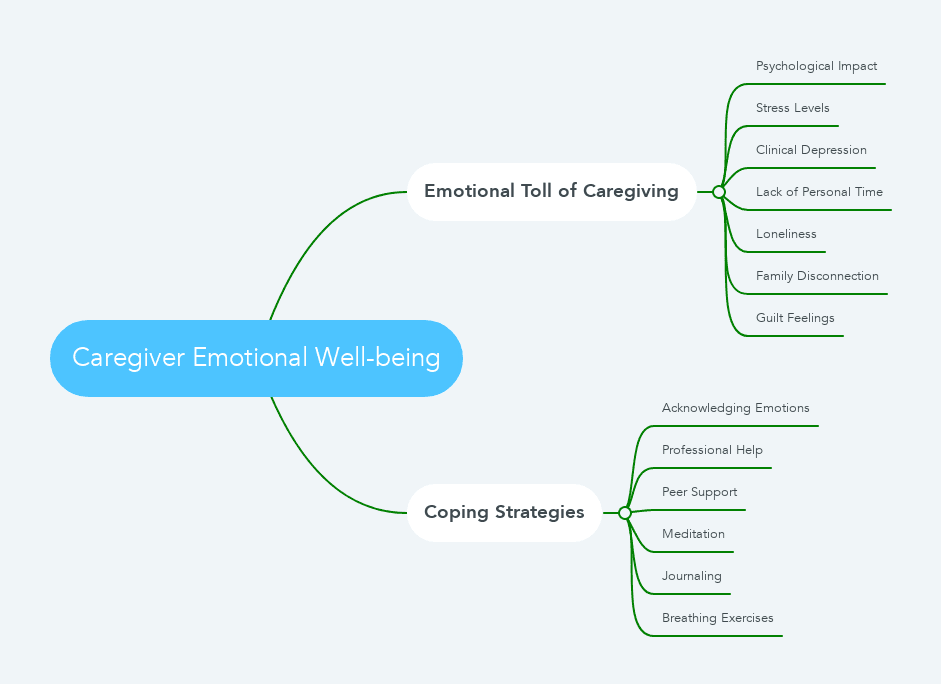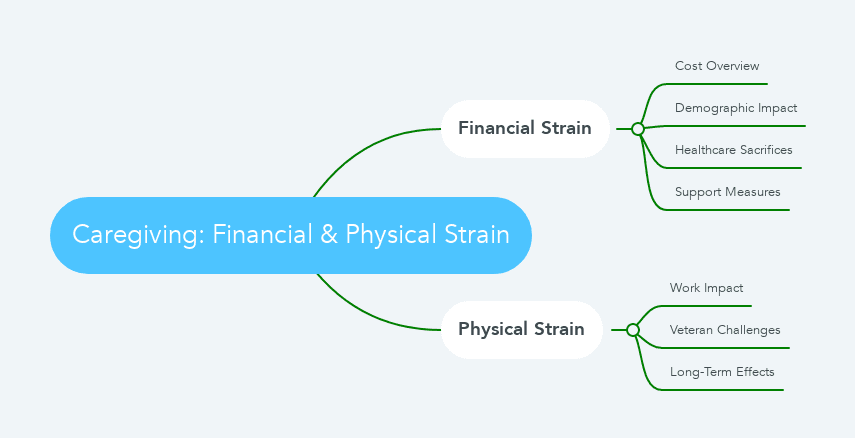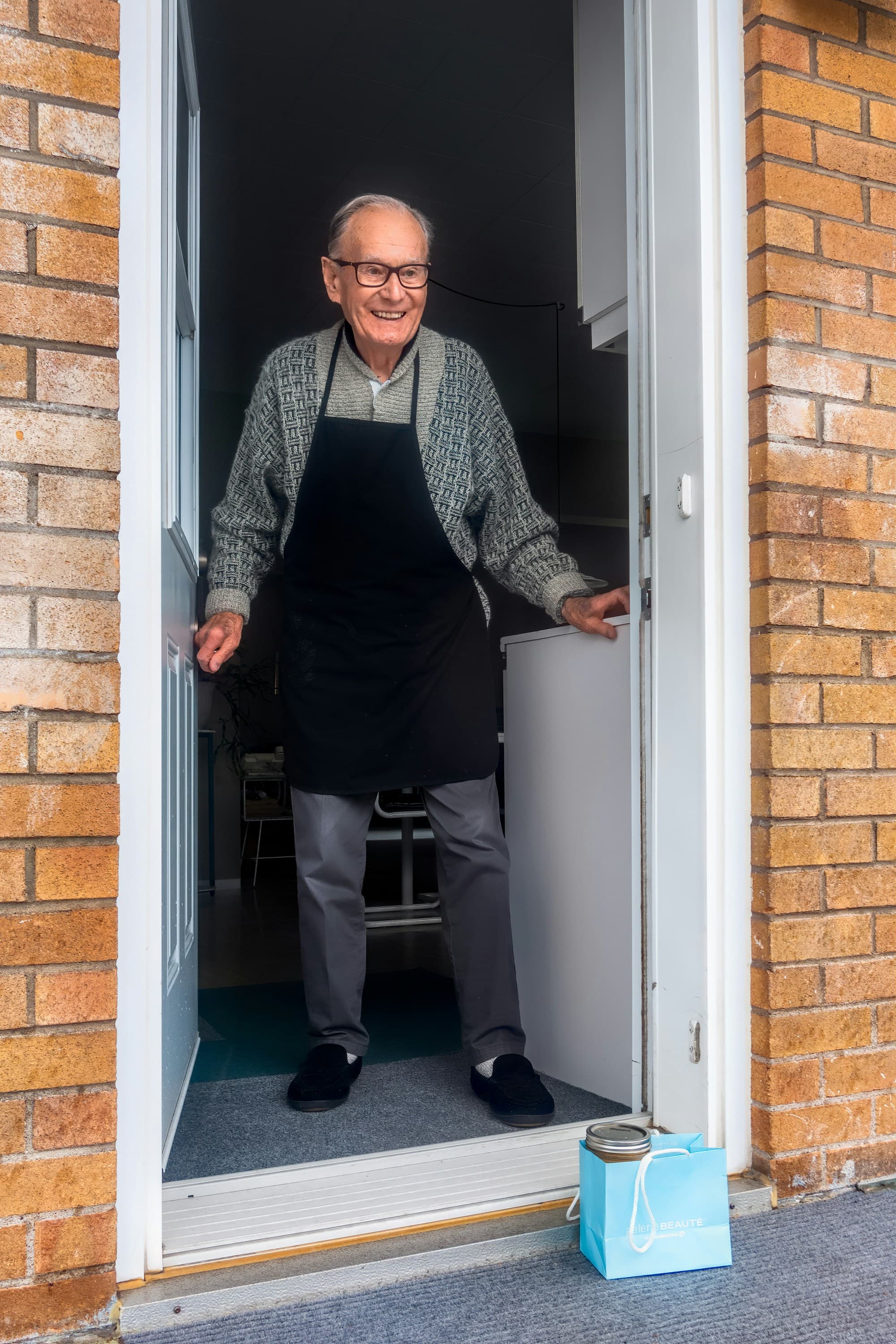Understanding Caregiver Burnout
Signs and Symptoms of Caregiver Burnout
Caregiver burnout is when the stress of taking care of someone becomes too much, leading to feeling worn out physically, emotionally, and mentally. More than half of caregivers go through this, making it a common but serious issue.

On the physical side, you might feel tired all the time, get sick more often, have headaches, or see changes in how much you eat and weigh. Emotionally and mentally, you might feel more irritable, pull away from friends or things you used to enjoy, feel anxious or sad, and get upset over small things. Socially, you might find yourself hanging out less with others and losing interest in hobbies or activities that used to make you happy.
These signs can slowly sneak up on you, making them easy to brush off at first. However, they are clear signs that caregiving is starting to be too much without affecting your health.
Consequences of Ignoring Burnout
Not paying attention to signs of burnout can lead to serious health problems because of ongoing stress. This not only affects your physical health but can also make money matters worse as the costs of caregiving add up and possibly shake up your financial security.
The impact on personal relationships is another big consequence. The stress and feeling alone that often come with burnout can make keeping healthy relationships with loved ones harder. Spotting burnout early and finding ways to deal with it are key steps in keeping these important connections strong.
Taking care of yourself turns out to be a crucial way to manage caregiving duties effectively. Checking in on your own well-being regularly and taking breaks can help avoid the long-term effects of burnout. Remember, looking after yourself isn't just about being able to care for others; it's about keeping yourself healthy and happy too.
The Emotional Toll of Caregiving

The Psychological Impact of Caregiving
A lot of caregivers, more than 40%, feel stressed out, and between 40-70% might even get clinically depressed. This shows how hard caregiving can be on your emotions. One big reason for this stress is not having enough time for friends or yourself, which can make you feel lonely and cut off. It's also tough to keep up with family or friends because caregiving takes so much time and energy.

Feeling guilty is common too—maybe you think you're not doing enough for your family or not taking good enough care of your elderly parent. These feelings are heavy and hard to deal with.
Coping with Caregiver Emotions
The first step in dealing with these tough emotions is to admit they're there and look for help. Talking to a therapist or counselor can be a big help. They can guide you through your feelings and suggest ways to feel better.
It's also good to talk regularly with doctors or other health pros who can give advice and support. Joining groups led by professionals can make you feel less alone because others are in the same boat.
Some practical tips include trying things like meditation, writing down your thoughts, or doing breathing exercises. These can help lower stress and make you feel calmer.
Financial and Physical Strain of Caregiving

The Cost of Care: Understanding Financial Burdens
Taking care of an elderly parent costs more than just time; it also hits your wallet. On average, family caregivers spend about $7,242 every year on caregiving. Most of this money, more than half, goes to housing costs. Medical bills are also a big part, making up 17% of expenses.
Some people feel this financial pressure more than others. If you're caring for someone with Alzheimer’s or mental health issues, your costs could jump to around $8,978 or $8,384 respectively. Gen X caregivers spend the most, with an average of $8,502 a year. Younger caregivers and those from Hispanic/Latino or African American backgrounds often have it tougher. For example, Hispanic/Latino caregivers use up 47% of their family income on caregiving, while African American caregivers spend 34%.
Almost half of all caregivers have to cut back on their own healthcare spending or use their savings to cover caregiving costs. There are some helps available like the Medicaid caregiver child exemption and a proposed tax credit called the Credit for Caring Act that offers up to $5,000 for eligible caregivers.
Physical Demands and Work Strain on Caregivers
Moving to the physical side of caregiving shows another set of challenges. The job can be physically tiring and often forces caregivers to take their own paid sick days or vacation time off work. Those who face work-related stress tend to spend twice as much as those without such stress.
Veteran and military caregivers especially find it tough dealing with both the physical demands and financial problems—43% report financial difficulties due to caregiving duties. Beyond the immediate tiredness and money worries is a bigger concern: how caregiving affects retirement savings and overall health over time.
Legal and Ethical Considerations in Caregiving
Patient Rights and Ethical Principles
First off, it's key to respect an elderly parent's right to make their own choices about their care. This means supporting their independence and dignity.
The ethical rules of doing good (beneficence) and avoiding harm (non-maleficence) guide caregivers to make choices that are best for the elder, while being careful not to hurt them.
Informed consent is also crucial. It ensures that elderly parents fully understand their care options before agreeing to them. This respects their ability to make decisions.
Lastly, fairness in how care and resources are shared (distributive justice and equity) is important. Caregivers should aim to treat everyone fairly, making sure everyone gets the support they need without bias.
Legal Responsibilities and Documents
Laws around elderly care can vary by country, affecting caregivers in different ways. It’s important for caregivers to know these laws well.
Having important legal papers—like a will, living will, and durable power of attorney—is vital. These documents make sure an elderly parent’s wishes are followed, even if they can't make decisions themselves later on.
Sometimes, taking legal responsibility (guardianship) for making decisions on behalf of an elder might be needed. This is a big step that requires going through court but can be crucial for proper care.
Healthcare providers often talk with family or chosen proxies when patients can't share their wishes. Planning for emergencies with parents is also part of this, making sure everyone knows what to do in different situations.
Financial and Filial Obligations
In some places, laws require adult children to provide care or financial help to aging parents. However, these duties vary a lot and often depend on both the child's and the parent's money situation.
While many feel it's morally right to care for their parents, legal requirements are less common unless stated by laws. Knowing these duties is important for planning and setting expectations right.
Lastly, welfare benefits can affect the legal and ethical duties of caregivers. These benefits can change how caregiving arrangements and financial support are handled, showing the need for careful thinking about available resources.
Finding Support and Resources
Finding Help and Resources
Caring for an elderly parent can be tough. It's important to know you're not alone and there are ways to make things easier. Here's how you can find help and support.

Getting Support from Others
First, understand it's okay to ask for help. You can find support in many places. Joining groups with people in similar situations can be a big relief. These groups can meet in person or online. They're a good place to share stories, get advice, or just have someone listen who gets it. Friends, family, and community groups like churches can also offer support and sometimes help with care.
Using Community and Professional Help
There are many resources out there to help caregivers. Local organizations often run workshops where you can learn new things and meet other caregivers. Using technology, like apps or online communities, can also make finding information and support easier. If you're feeling overwhelmed, professional services like counseling are available too, sometimes through work programs known as Employee Assistance Programs.
Talking to Employers and Sharing Tasks
It's important to talk to your job about your situation. Many employers understand and might offer flexible work hours or other support through Employee Assistance Programs. Don't be afraid to suggest changes that could help you balance work and caregiving.
Sharing the caregiving tasks with others can also lighten your load. Ask family members, friends, or hire professional help if needed. Staying connected with people who support you is key.
Exploring Care Alternatives
Professional and In-Home Care Options
Looking after an elderly parent means thinking about different kinds of help. This includes care from trained people for health needs like treating wounds, managing diabetes, or giving medicines. It also covers help with everyday tasks. Agencies that provide these services can make a care plan just for your loved one's needs. It's smart to talk to doctors or social workers when picking the right kind of care. They can give advice on what your parent might need and suggest helpful tools or changes at home. Also, see which family members and friends can help out. Working together helps make sure the care chosen fits well with what your loved one needs.
Senior Living Communities
Places where older people can live and get care, like assisted living or nursing homes, are another option. When looking into these, think about how close they are to family, what special things they offer, and if they have health services on site. Ask about how many staff they have, how they deal with emergencies, and how they take care of residents' needs when you visit. Reading reviews or talking to people who live there or their families can also give you a good idea of what it's like. This info helps you pick a place where your loved one will feel supported and cared for.
Financial Considerations and Resources
Understanding the money side of things is key when choosing care for an elderly parent. This means knowing about costs, how to pay, and any contracts you need to sign with care places. Always ask about all the fees and if there are extra costs so there are no surprises later on. Checking if your parent qualifies for Medicaid and if the place accepts it is also important because it can help with costs.
If you're working while caring for your parent, look into flexible work options like changing your hours or working from home some days. Some employers offer help finding services for older adults, which can include medical help or getting meals delivered.









